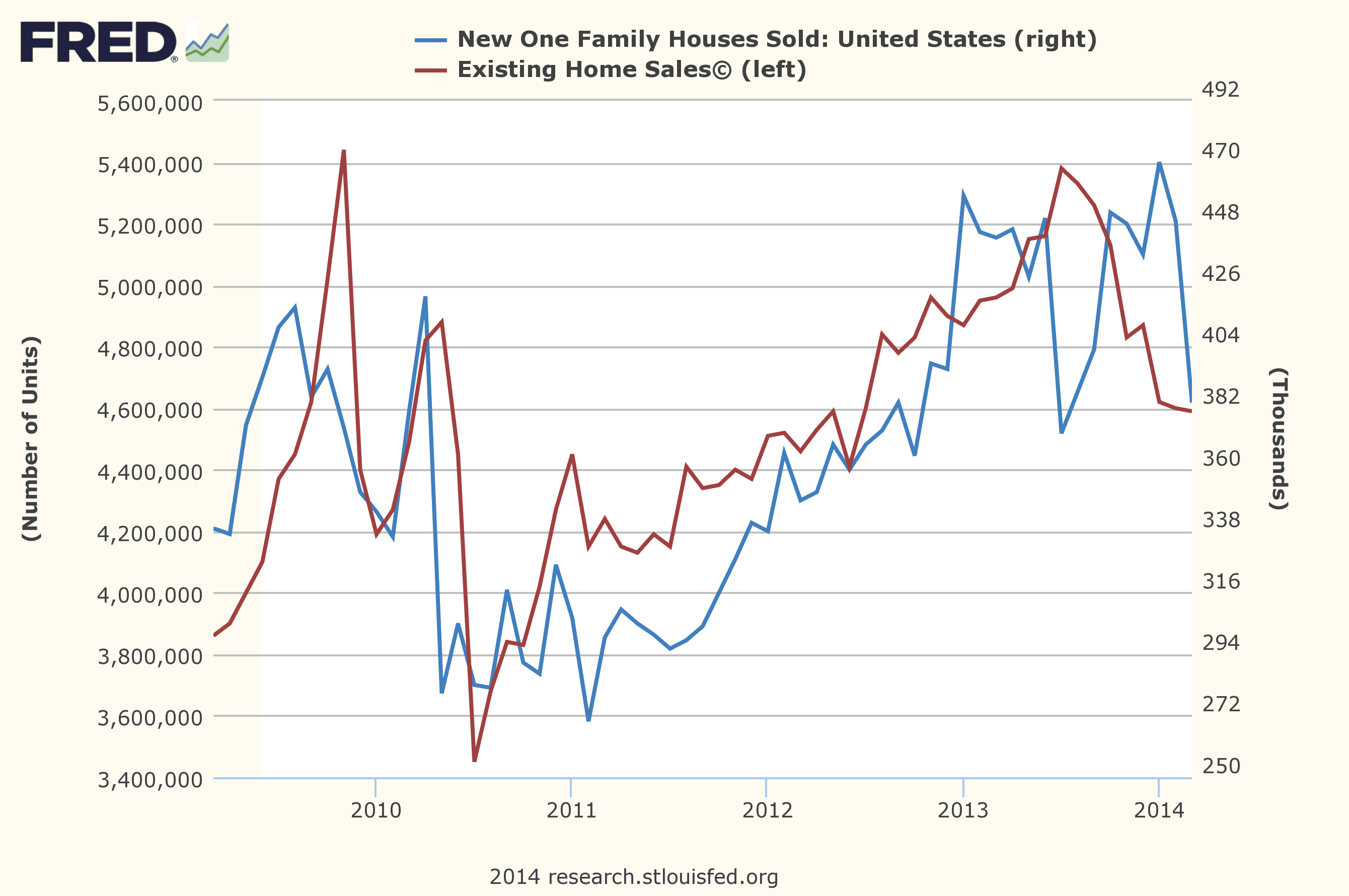Given the influential role that housing tends to play in the economy, particularly during periods of post-recession recoveries, it’s reasonable to wonder if there’s a new round of trouble brewing for the business cycle. Indeed, some economists argue that “Housing IS The Business Cycle,” as Ed Leamer advised in his 2007 research paper. There’s no doubt that housing is a crucial factor for macro analysis and so this sector warrants close attention. But for the moment, the data isn’t flashing a clear threat for a simple reason: the broad trend for the economy ex-housing still looks encouraging, as I discussed in last week’s US Economic Profile.
From industrial production to payrolls to retail sales, there are signs that growth is holding steady and perhaps picking up. Reviewing the numbers across a broad set of indicators continues to show that recession risk is low. The upbeat trend is subject to change, of course, if housing continues to deteriorate. When you look at the negative momentum in sales, it’s easy to be pessimistic about the future.
But keep in mind that in the grand scheme of business cycle analysis there’s always a corner of the economy that’s weak. I don’t want to minimize the potential for trouble if housing deteriorates further. At the same time, we should be wary against the habit of letting the tail wag the dog. As I demonstrate in my new book, Nowcasting The Business Cycle, history tells us to look for convincing signals in a broad cross section of data before assuming the worst for the economy. Rushing to judgment based on cherry picking the numbers in the short term, by contrast, has a poor record for dispensing reliable signals.
With that in mind, the wobbly housing data of late doesn’t yet provide a clear and compelling case to dismiss the positive trend that otherwise dominates the state of macro in the US. If and when housing’s latest stumbles turn into something darker, the blowback will start to infect spending, payrolls, and other corners of the economy. It’s easy to throw out predictions that this is fate, but that’s just rank speculation. Keep in mind that we can just as easily round up positive explanations for thinking that the latest housing slump is temporary.
For instance, The Wall Street Journal notes that “some of the decline in existing-home sales stems from the shrinking supply of distressed homes.” Another view is that the strong rebound in home prices in the last few years has taken a toll on sales. But as Reuters reports:
A run-up in prices, which has reduced affordability, is also starting to moderate.
“The negative housing momentum, which was exacerbated by severe weather conditions during the winter months, may be starting to fade,” said Gennadiy Goldberg, an economist at TD Securities in New York.
With a broad set of macro numbers still trending positive, it’s premature and risky to argue that the economy’s headed into the cyclical ditch. Moderate growth is still a prudent assumption, and for a good reason: that’s the bias via a majority of financial and economic indicators. This could change, and perhaps soon. But assuming it’s already changed, based on a few weak months of data for a minority of data sets, is little more than guessing.

